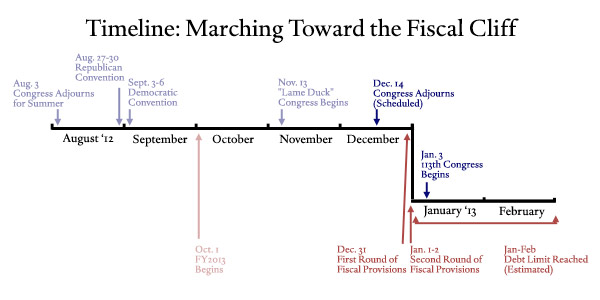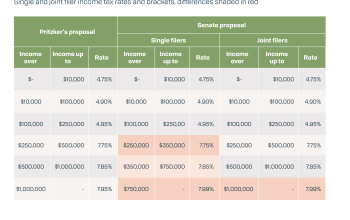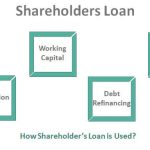“Give him the fiscal cliff”
I sometimes worry. Sometimes a lot. I have lived in the United States and abroad for several years, and once when I left in 2010, I knew it clearly. In a short time (I don’t know, how many months?) I will witness the collapse of this American behemoth. Leviathan, who became the United States, groaned under unbearable financial pressure and was about to step down. When the United States had to yield to a stronger financial force and faced its own fiscal liquidation, I fully expected that I would be too scared to believe it. I have been attracted by finance and economy. (For me, it is not sports, but finance.) With the development of the past few years, it is surprising that the United States has not only not collapsed, but also found a new way to look at the real development of economic and macroeconomic issues.
I once believed that economics was born of such great ideas as Keynes, Hayek and von Mises. Through quantification, calculation and forward analysis, although there are many economic schools, they have predicted possible results according to their specific certainty. They use historical models as reference and evidence to support their forward-looking predictions and capture the imagination of more thinkers. Considering their various philosophies on how the economy works, the huge debate has continued to this day. Each side, whether the right wing or the left wing, constantly surpasses the other side with evidence and “correct results” when the event occurs, which is conducive to their world outlook.
“Present the financial cliff”
But I came to a new conclusion. Economics is more political and social, rather than relying on numbers and mathematics. Mathematics is the final arbiter. It leads us to the end of the story, but the real plot is an important part, because it is a drama staged before our life, economy and civilization rise and fall. This is always a long and profound, subtle and unpredictable story.
The mathematical hypothesis of economics is rational and predictive behavior. But the social aspect of economics requires that even if the government acts for greater interests, there will be winners and losers. In the United States, our social structure and democracy depend on the consent of the governed. Only when the ruled people participate in our democracy through voting can democracy play a “role”. We will support the development of events and results as long as our ruled agree that we actively participate in participatory democracy. Finally, we played a “role” in facilitating these things.
In fact, the answer to the fiscal problems facing the United States is insurmountable. They can’t solve it. That’s what math says. The amount of debt accumulated by the United States and the monetary measures required to remedy it cannot be implemented to any meaningful extent. This is an unpredictable and complex problem, which is politically inappropriate and can hardly be solved. Ordinary Americans, not to mention tolerating the necessary reduction of rights and increase of taxes, cannot understand that this is what is needed to truly restore our inverted American economy.
“The fiscal cliff prevented this sinking feeling”
The so-called “answer” to this dilemma has emerged, attracting not only the imagination of the United States, but also the imagination of the world. This is a performance of the political and social theater. At first, it was brilliant and exquisite. The answer is the fiscal cliff. The words themselves are inauspicious enough to make people stop. “There is an impending ring of bad luck on the fiscal cliff. These words not only frighten people, but also unite those who listen to them. Hearing these words, most Americans are ready to mobilize all resources to avoid this imminent disaster.”
So Americans are united. They participated in the presidential election and selected people who thought they had the right things and funds to deal with wild animals. They bravely stood out when we were on the edge of the cliff, chose the people who could catch us, and took us to a safer place with calm and determination. We are safe now. We didn’t cross the cliff. Disaster has been averted. As Americans, we united to exercise our democratic rights and solved the crisis. We won. As a society, we are in a good mood now. Now we can move forward with more confidence. We have faced the crisis and have taken measures to “solve it”.
But this has not been solved. It is not even close to resolution. The “big agreement” reached between the opposition parties on the fiscal cliff will not significantly reduce our outstanding debt with a minimum tax increase, and promises to solve the problem of spending cuts in a few months. My expectation is that these cuts, like most other promised cuts, will never really be realized. They don’t seem to have done that. The actual agreement reached, the deficit is 4 trillion dollars more than it is now. Partially cut. Part of the fiscal cliff. Have we solved the reality? No, but the theater? fantastic
“More fiscal cliff”
The reality before us, then, is that the United States has no political solution to the problems that beset us. The financial difficulties sweeping us are unimaginably bad, but there is no substantive solution. Politicians themselves know this. They focus on the next best thing. That is to keep the regeneration of music. Louis XV said: “; Apr á s moi, led é luge (April); ‘The flood behind me’ shows that his only concern is his own life and life. Today in the United States, the ruling class focuses on the present. In order not to stop music, the participation of the ruled is very important. When music stops, order will collapse and chaos will continue. (Take France as an example. After Louis was fifteen years old, the French Revolution began.).
This is not the kind of picture that everyone wants to see. So when I consider our financial difficulties, I don’t worry so much anymore. I’m worried about the last game. What I know is that the outcome is true, but it cannot be predicted. At the same time, I will enjoy and listen to the playback of music. “; More fiscal cliffs are”










